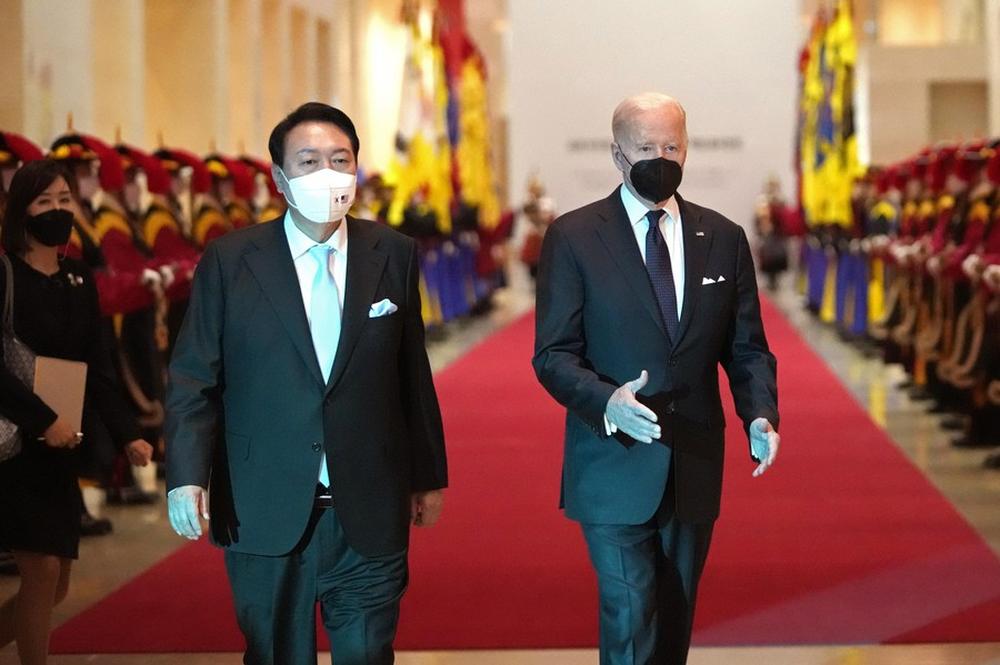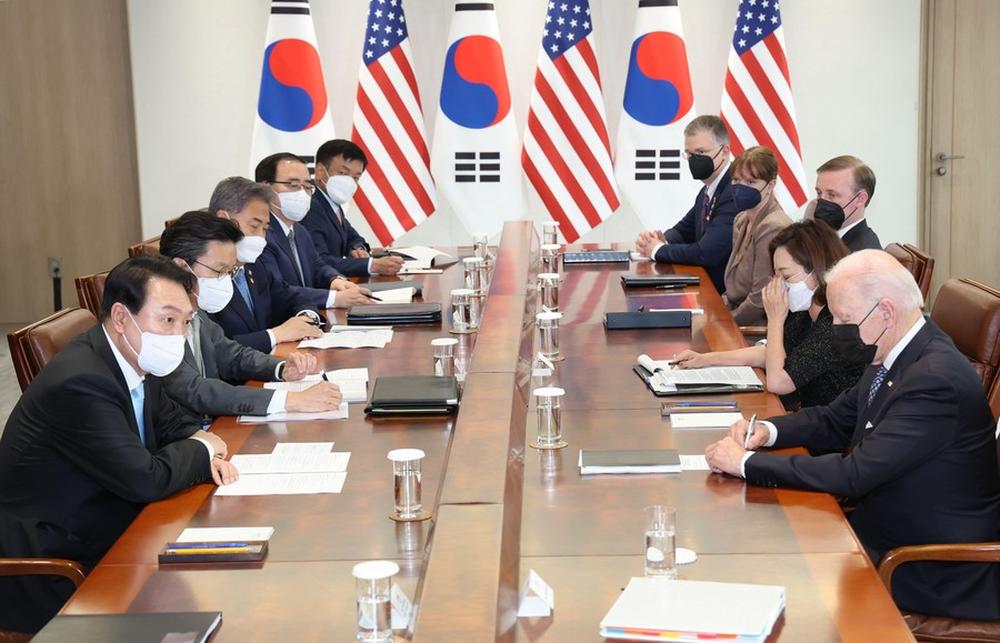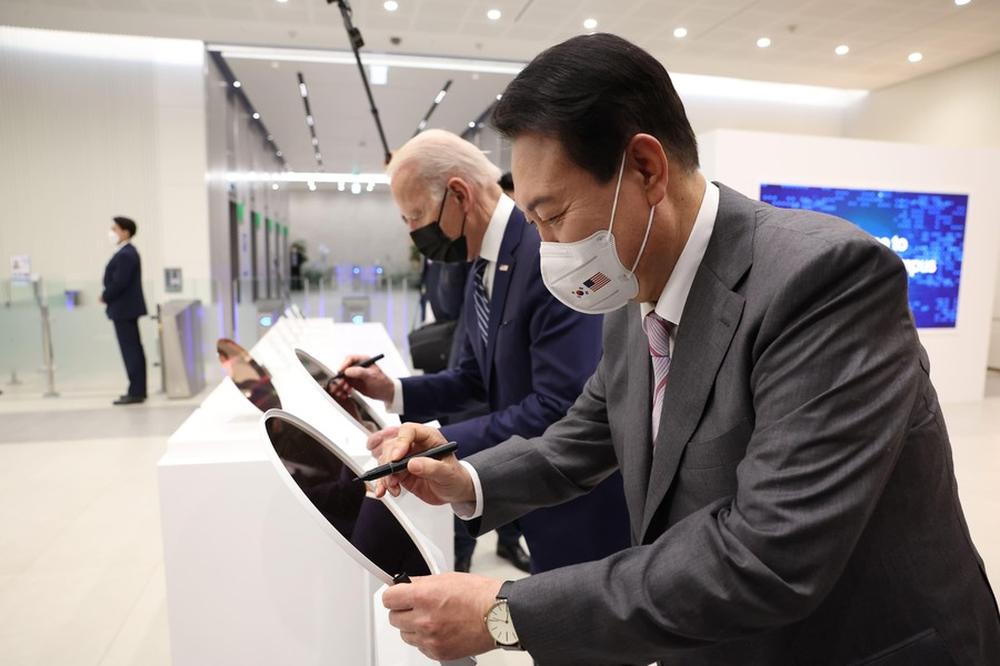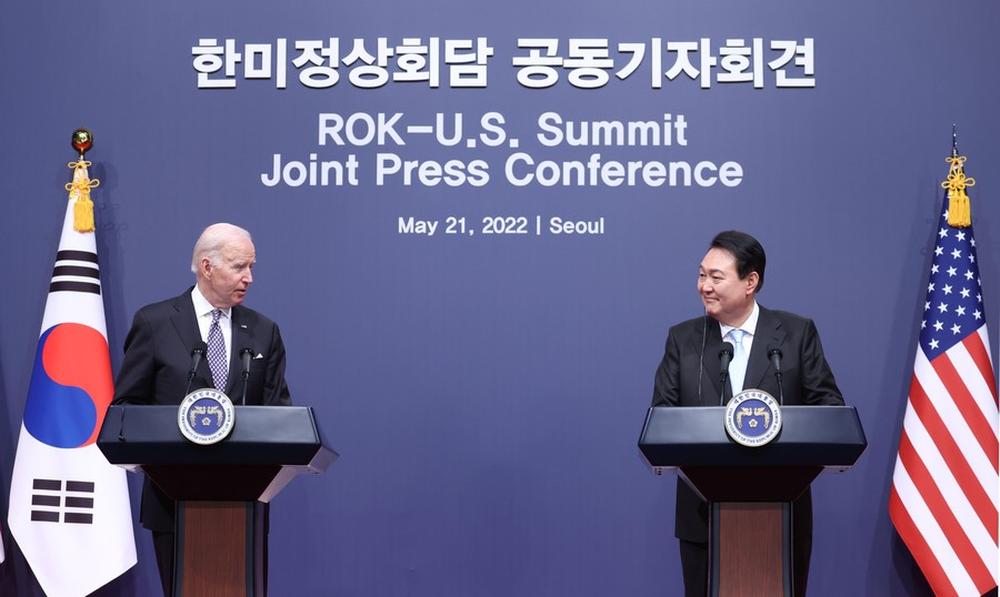- #Global Issues
- #South Korea
- #US Foreign Policy
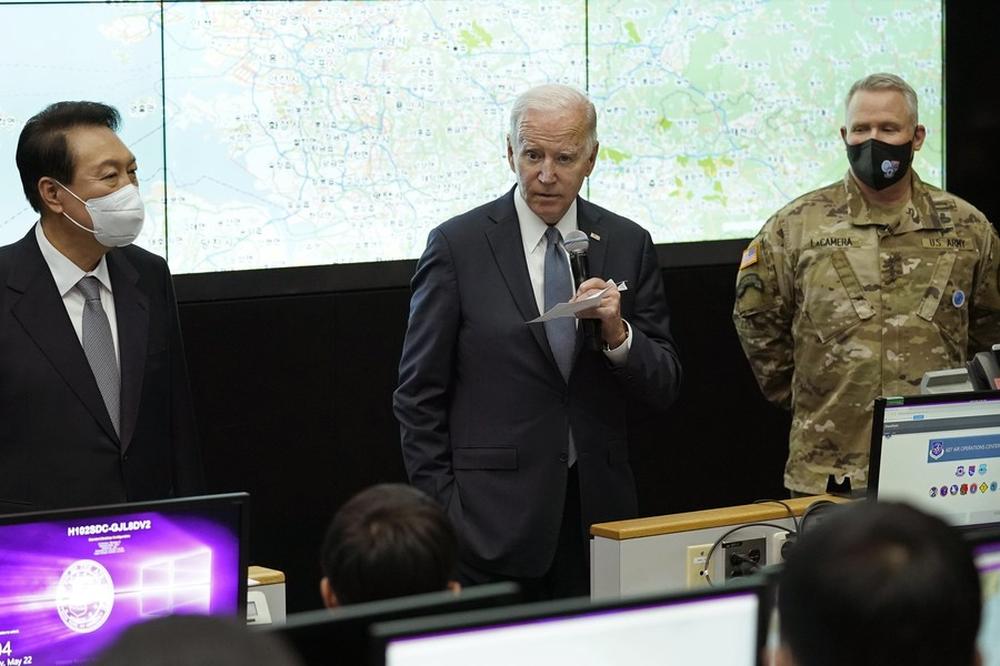
► There is a saying within the foreign policy community that the first summit is hard to fail. This was the case for the three-day in-person meeting between US President Joe Biden and newly elected South Korean President Suk Yeol Yoon.
► With the highest price level since the early 1980s, bundled with high gas prices, immigration problems, high crime rates and even a baby formula shortage, the Biden presidency was already in crisis as the ROK-US summit approached.
► The first summit between Yoon and Biden provided strong evidence that President Yoon would keep his campaign promise.
► Deterring North Korea without denuclearization is only a temporary solution. The comprehensive strategic alliance between South Korea and the United Sates can and should do better.
There is a saying within the foreign policy community that the first summit is hard to fail. This was the case for the three-day in-person meeting between US President Joe Biden and newly elected South Korean President Suk Yeol Yoon. During his political career, Biden has long cherished personal connections, particularly so on the world stage. The welcoming and friendly phrase “Hi, Joe” encapsulates Biden’s approach to foreign policy and his experiences as he served as the Chair of the Senate Foreign Affairs Committee and as Vice President during the Obama administration. On the other hand, President Yoon, just sworn in on May 10th, needed to show that he can be successful in his first ever formal meeting with a foreign leader. That foreign leader just so happened to be the President of the United States, one of the most important allies for South Korea and the most valuable country for President Yoon politically.
Timing is everything. The global situation right before the ROK-US Summit in Seoul was, as per usual, quite complicated. As the war in Ukraine quickly approaches its 100th-day-mark in early June, there is no news of an end-of-war agreement in sight. Russian aggression in the European continent has brought about global economic turmoil. As sanctions against Russia and Russia’s hardline responses escalated, the natural resources market and global supply chain reached crisis-level instabilities. As the COVID-19 curve began stabilizing, the end of the pandemic redirected global demands and supplies; as such, a high level of demand without enough supply has stirred inflation everywhere.
Inflation has always been politically damaging to presidential approval rates in the US. With the highest price level since the early 1980s, bundled with high gas prices, immigration problems, high crime rates and even a baby formula shortage, the Biden presidency was already in crisis as the ROK-US summit approached. In fact, on the day of Biden’s departure for Asia, the AP announced that President Biden’s approval rating had dropped to 39 percent, its lowest point to date. Although the Biden administration has tried to shift blame by, for example, branding the level of inflation as the “Putin Price Spike,” American voters remain indignant. The Democratic Party’s talking points include a stipulation that low unemployment rates inevitably heighten inflation, and that the Biden administration is accordingly working very hard to curb costs through supply chain stability. On top of economic instability, Biden also had to manage typical political attack lines from the Republican Party that he is a weak and incompetent president. So as Biden embarked on his first trip to Asia, his Indo-Pacific strategy was to both break supply chain backlog and to be tough on China in China’s own backyard at the same time.
When it comes to South Korea, America’s sentiments toward the Moon Jae-in government (2017-2022), whose counterpart was mostly the Trump administration (2017-2020), was a mixed bag. On the one hand, South Korea, “alliance forged in blood” with the US since the mid-20th century, has recently become increasingly closer to China for economic reasons. On the other hand, left-leaning President Moon tried relentlessly to court Trump for US-North Korea talks and negotiations. Besides this, President Moon visited Washington about a year ago and delivered two huge gifts for the new US President Biden: a $35 billion investment package for the US and press conference remarks by Moon supporting peace and stability on the Taiwan Strait. While the QUAD has decided not to expand for the time being, the Biden administration needed South Korea, the 10th largest economic powerhouse, to join his new initiative he dubbed the Indo-Pacific Economic Framework.
So, what about President Yoon’s situation and political context in South Korea? The head prosecutor-turned-president won the election in March by a razor-thin margin and is now facing a divided government where the opposition party controls the National Assembly until the next general election in 2024. Opposition candidate Yoon successfully ran on the slogan of regime change and yet, given the close vote margin of 0.7 percent, it is hard to conclude that Yoon has won any political mandate. The instability of the real estate market and several corruption scandals during the Moon administration were the main reasons to put Yoon, the former prosecutor, in power. During his inaugural speech, President Yoon vowed to heal political and economic divides in his country. We will see how he delivers on this promise.
The foreign policy context surrounding the single-term president in South Korea paints a different picture. Unlike on other election issues, major candidates differed on the realm of foreign policy. The ruling party candidate emphasized a balanced position between China as the biggest trading partner for Korea and US as the one and only military alliance. President Yoon took a starkly different position—that Korea should be decisively siding with the United States despite potential threats and retaliations coming from China. Ending the alleged strategic ambiguity, President Yoon suggested that South Korea should be no longer play a passive role when it comes to the US-China rivalry.
The first summit between Yoon and Biden provided strong evidence that President Yoon would keep his campaign promise. On the security side, two leaders agreed to step up joint efforts to deter increasing nuclear and missile threats from North Korea and reactivate the suspended Extended Deterrence Strategy and Consultation Group (EDSCG) at the earliest date. Expanding the joint military exercises, the United States reaffirmed its commitment to deploy its strategic military assets in the event of a contingency on the Korean Peninsula. Yoon and Biden also agreed to cooperate for supply chain resilience by Korea joining the Indo-Pacific Economic Framework (IPEF), which is Biden’s new initiative for economic rule-setting in the region. It is no wonder that Samsung Electronics and Hyundai Motors were also major players during Biden’s first visit to South Korea.
Yoon’s drastic push for siding with the United States on many foreign policy fronts, however, has also raised some concerns. First, the Chinese government quickly voiced worries that Korea getting too close to the US might hurt its relationship with China. Not surprisingly, China is suspicious that the Indo-Pacific strategy by the United States ranging from QUAD to IPEF aims to exclude and contain China. Second, although it is very important for two presidents to emphasize security cooperation against North Korea through extended deterrence, deterrence should not be a policy option replacing denuclearization. During his stay, Biden did not offer any new or realistic strategies regarding how to denuclearize North Korea. Third, although a series of huge investments by Korean conglomerates in US will ultimately help the Korean economy, it does not address the domestic job shortage in Korea. After all, the young generation of South Korea needs jobs in their home country, not in the US.
Overall, the first summit meeting between President Yoon and President Biden went well. The two leaders seem to have built strong personal connections with each other, which become critical for the US-ROK relationship down the road. Reaffirming extended deterrence by the United States was another important achievement for South Korea, especially when North Korea seems to have no interest in talks for now and as Russian aggression to Ukraine has raised global security concerns. Joining the IPEF at an early stage will also help the Korean economy actively participate in the rule and norm-setting stage of economic cooperation for the regional economy. And yet, extended deterrence coupled with expanding joint military drills does not ultimately solve the problem of nuclear threats from North Korea. With security concerns taken care of, I’m hopeful that the next talk between Yoon and Biden in the near future will tackle how to strategically respond to the question of North Korea. Deterring North Korea without denuclearization is only a temporary solution. The comprehensive strategic alliance between South Korea and the United Sates can and should do better.
Jungkun Seo is a Professor in the Department of Political Science at Kyung Hee University, Seoul, Korea. Prior to joining Kyung Hee University, he was an Assistant Professor (tenure-track) in the Department of Public and International Affairs at the University of North Carolina, Wilmington (2007– 2012). Dr. Seo is a Fulbright Fellow at the Woodrow Wilson Center in Washington D.C. (2019) and served as the President of the Korean Association of American Politics (2020). Professor Seo’s research interests include American politics of foreign policymaking and US policy toward East Asia. Dr. Seo published the books titled When American Politics Meeting International Relations (in Korean) and American Politics and US Asia Policy (in Korean), both selected as one of the year’s best books by the National Academy of Sciences in Korea. Jungkun Seo received a Ph.D. and an M.A. in Government from the University of Texas at Austin and a B.A. in Political Science from Seoul National University.


